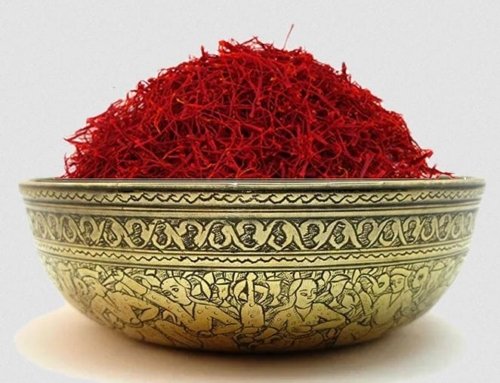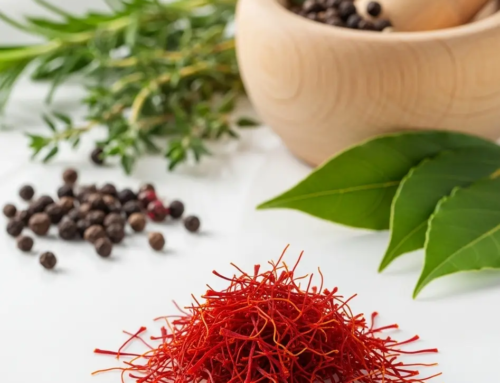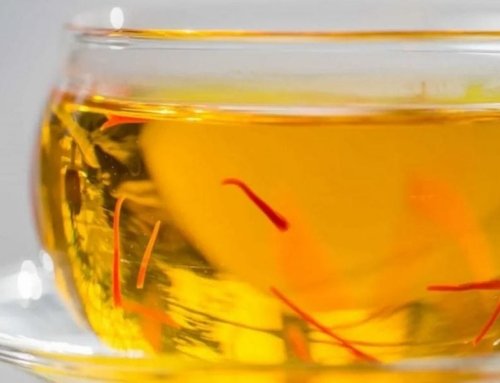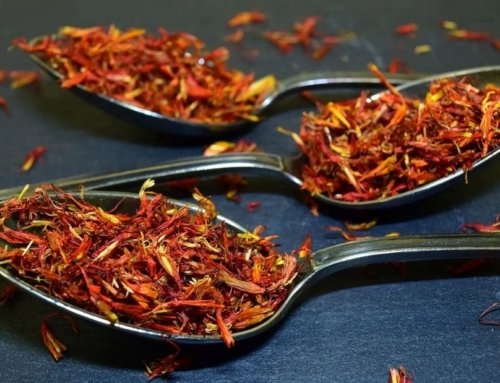 8 Important Health Benefits of Saffron Tea
8 Important Health Benefits of Saffron Tea
Saffron is a valuable plant that offers numerous health benefits, including those found in saffron tea, which provides amazing flavor and aroma. For centuries, people have used saffron tea in traditional medicine, home remedies, and ancient pharmaceuticals. Fortunately, saffron appears in many traditional Iranian dishes, so most of us are familiar with its exceptional benefits. However, learning how to brew saffron properly can preserve its quality and maximize its health advantages. This spice, famous for enhancing the flavor and aroma of food and desserts, provides additional health benefits. It not only boosts immune system function and mental health but also helps treat various illnesses while energizing the body.
Saffron: The Red Gold
Saffron comes from the flower Crocus sativus, which belongs to the iris family. The spice is derived from the delicate, thread-like stigma of the flower. Originally from Asia, saffron has a long history as a medicinal plant that strengthens the body. Due to its rarity and high value, saffron is often referred to as “red gold.” People use it as a seasoning and coloring agent in cooking, and medical professionals widely acknowledge its medicinal properties, particularly its active compounds like crocin and safranal. In fact, experts in the medical field use saffron for various therapeutic purposes.
Health Benefits of Saffron Tea
Saffron is a warm and dry substance in traditional medicine, which gives it distinct advantages. Rich in antioxidants, saffron tea offers various health benefits. Among its many advantages, saffron tea has been linked to improved mood, enhanced sexual function, relief from PMS symptoms, and weight loss. Moreover, its warm and dry nature can significantly reduce anxiety, stress, and depression. Let’s explore the key benefits of saffron tea.
1. Lower Blood Sugar and Heart Disease Prevention
The health benefits of saffron are clear. For example, the antioxidants in saffron help lower blood cholesterol levels and prevent the blockage of blood vessels and arteries. When brewed correctly, saffron tea reduces blood sugar levels and increases insulin sensitivity.
2. Enhanced Memory and Improved Vision
In adults suffering from Alzheimer’s disease, the antioxidants in saffron may boost cognitive function. Furthermore, studies show that saffron tea improves vision in adults with age-related macular degeneration (AMD) and protects them from free radical damage.
3. Appetite Reduction and Weight Loss
Overeating is a common habit that leads to unwanted weight gain. Research indicates that saffron tea helps suppress appetite, aiding in weight loss. Specifically, an eight-week study revealed that women who consumed saffron tea felt significantly fuller and lost more weight compared to those who took medication.
4. Anti-Cancer Properties
Saffron contains powerful antioxidants that neutralize harmful free radicals. Chronic diseases, such as cancer, are linked to free radical damage. In fact, studies show that saffron and its compounds can selectively destroy or halt the growth of colon cancer cells while leaving normal cells unaffected. This effect extends to other cancer cells, including those in the bone marrow, skin, lungs, breasts, prostate, cervix, and more.
5. Mood Improvement and Depression Relief
Saffron, often referred to as the “sunshine spice,” is known for its mood-boosting properties. Research shows that saffron tea effectively treats mild to moderate depression. Additionally, saffron petals contribute to the treatment of depression symptoms.
6. Strong Antioxidant Properties
Saffron contains several plant compounds that act as antioxidants, protecting cells from free radical damage. Some of these antioxidants include crocin, crocetin, safranal, and kaempferol. As a result, these antioxidants may help reduce weight, alleviate depression, improve inflammation, and protect brain cells from progressive damage.
7. PMS Symptom Relief
PMS, or premenstrual syndrome, involves a group of emotional, psychological, and physical symptoms that occur before menstruation. Fortunately, studies show that saffron tea helps relieve PMS symptoms. In women aged 20-45, daily consumption of 30 mg of saffron has proven more effective than medication in relieving PMS symptoms such as pain, cravings, irritability, and headaches.
8. Sexual Health Boost
Some foods and supplements are considered aphrodisiacs, improving sexual desire and performance. Studies show that saffron has aphrodisiac properties, especially for those taking antidepressant medication. For instance, consuming 30 mg of saffron daily for one month improved erectile function in men with erectile dysfunction more than a chemical drug.
The Best Methods for Brewing Saffron
The effectiveness of saffron in coloring and flavoring food depends on the brewing method. While some people brew saffron with hot water, others prefer using ice. Below, we explain these methods.
Brewing Saffron with Hot Water
This traditional method has been used in Iran for centuries. Brewing saffron with hot water quickly infuses color and requires little time. To brew saffron with hot water, place ground saffron in a closed container and add hot water. Typically, half a cup of hot water is enough for one teaspoon of saffron. Cover the container and place it on indirect heat for about 20 minutes to allow the saffron to release its color.
Brewing Saffron with Ice
Brewing saffron with ice is a modern method that releases more color from the saffron, although it takes longer. To brew saffron in this way, grind the saffron thoroughly, place it in a container, and add a couple of ice cubes. Allow it to thaw at room temperature.
Conclusion
Saffron tea offers countless health benefits. This powerful and expensive spice is rich in antioxidants and provides many health advantages, such as mood improvement, enhanced sexual health, PMS relief, and weight loss. Due to its beneficial properties, saffron is safe for most people and easy to incorporate into your diet. However, remember that the quality of saffron depends on proper brewing methods and sourcing from reputable stores.







Get Social